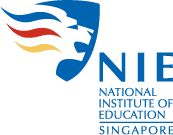For Danial Bin Mazlan, the winner of this year's EXPLORE Young Marine Scientist Research Grant, marine biology is more than a hobby or interest – it has equipped him to become a better educator for the future.
Danial Bin Mazlan's face lights up whenever he speaks about marine life. "I love anything to do with the sea," the third-year Biology major said, recollecting memories of his father's fish tank when he was a little boy. "I guess the fascination has been with me since young, as my parents loved taking me to the beach. I took up snorkelling when I was older, and the diving trips with family and friends have continued to fuel my interest. You could say marine biology is my favourite subject at NIE!" he added, for good measure. | Read More |
It is a passion that has come a long way for Danial. This year, he was named the recipient of the 2018 EXPLORE Young Marine Scientist Research Grant, an award by the Singapore National Research Foundation's Marine Science R&D Programme in partnership with the St John's Island National Marine Laboratory. This is a funding initiative to encourage exploratory research as well as nurture multi-disciplinary problem-solving skills and interest in marine science among youths.
"I honestly didn't know that I could pursue marine biology as a subject until I'd entered NIE. I came here because I wanted to teach Biology, and my goal was to help students appreciate its concepts and change their impression of Biology as a memorisation subject," Danial said, gesturing an air quote with his fingers.
Besides, Danial wasn’t interested in a desk-bound job – it’s the moving around in the great outdoors, the interactions with sun, sand and sea that bring a sparkle to his eyes. “I remember a field trip to Bintan with Dr Beverly Goh, our Diversity and Evolution lecturer in Year 1. We snorkelled during high tide to catch close-up views of the clams, corals and sponges we studied in class. And then when the tide receded, we did a coastal walk to catch different species of flatworms, starfishes, crabs and marine snails in action. The following year, I seized the opportunity to revisit Bintan with my juniors, and this time we saw many other marine creatures including jellyfish. The experience was truly amazing,” he marvelled.
Danial also credits Associate Professor Shirley Lim and Dr Norman Lim for motivating his interest in Biology. He added: “The highlight for me was the visit to Changi Beach for our module on Animal Diversity and Evolution. We caught quite a few marine animals – flounders, crabs, starfishes, comb jellies, squid, cuttlefish and even an octopus – and after identifying them, we would release them back to the sea.”
There have been many other field trips to Sungei Buloh Wetland Reserve, and to Chek Jawa at Pulau Ubin, where the sand dollar and carpet anemones were spotted as well. “Who would have thought that Singapore could have many marine species, especially since our seawater is so murky!” he exclaimed.
NIEWS wondered if there was any connection between these research excursions and a Future-Ready NIE. “To me, a Future-Ready NIE is one that aims to keep teachers updated and relevant for the future. Given the constant change in our natural environment, these field trips and the whole research process forced me to constantly ask questions and challenge assumptions. For example, while I’ve been researching oxidative stress levels of Nerita snails in various parts of Singapore, I’ve come to appreciate the broader ecological picture as these snails serve as biomarkers for the condition of our Singapore waters. That’s a valuable skill for Biology teachers to have, don’t you think?” Danial mused.
Danial also hopes to see more information technology incorporated into lesson plans and future classrooms, as well as more emphasis on education psychology, and more collaborative learning opportunities in a Future-Ready NIE. “It’s good to consider the hardware, but let’s not forget the heart-ware as NIE transforms for the future,” he quipped.





